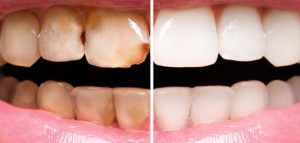
Acids and Your Health
Managing your oral pH is essential for a healthy mouth, good digestion and effective immune function. I am now seeing erosion in adults and children as often as I see tooth decay. Which is way too often. An acidic oral environment can be more dangerous to your teeth than sugar and carbs combined. Acidic tooth damage can not be reversed and is very difficult to restore. Teeth can become sensitive, dark in color and break and decay more easily. Oral acidity doesn’t just affect the teeth is can also can cause poor digestion and an unhealthy bacterial flora. This can lead to nutritional deficiencies and digestive dysfunction. The pH in the mouth is constantly in flux but needs to remain at or close to neutral of 7. Below this demineralization can occur. The goals is to keep the pH at neutral or above.
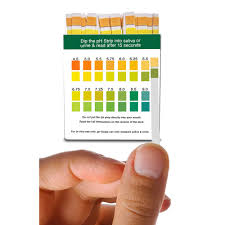 How do you know if your oral pH is acidic? Often your teeth can be sensitive, you may experience cavities often, and you experience breath odor concerns. If you experience acid reflux you have an acidic oral pH. The other way to be sure is to test it! We can test your salivary pH in our office. Call 519-736-1100 or email jen@embracedentalhygiene.com to book a pH test. Or you can purchase saliva test strips and test yourself. Make sure you follow instructions and wait for more than one hour after eating.
How do you know if your oral pH is acidic? Often your teeth can be sensitive, you may experience cavities often, and you experience breath odor concerns. If you experience acid reflux you have an acidic oral pH. The other way to be sure is to test it! We can test your salivary pH in our office. Call 519-736-1100 or email jen@embracedentalhygiene.com to book a pH test. Or you can purchase saliva test strips and test yourself. Make sure you follow instructions and wait for more than one hour after eating.
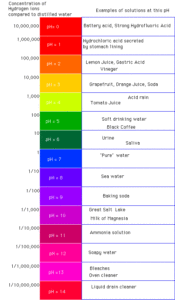
How to promote neutral pH and healthy teeth.
- Promote and support healthy salivation.
- Drink enough water. How much is enough? Click here to find out. Being hydrated ensures your body is functioning properly whether its chewing, swallowing, digesting or eliminating.
- Avoid excessive alcohol and consumption of caffeine. These are diuretic and can dehydrate.
- Eat alkaline. Fresh leafy greens, whole veggies and fruits, nuts and seeds.
- Avoid refined carbohydrates.
- Breathe through your nose. Manage sinus congestion with nasal rinses, consult with your MD and dental professional regarding airway health. Click here to read about the importance of nasal breathing.
- Rinse often. Rinse with plain water or salt water or even water with sodium bicarbonate (baking soda).
- Limit consumption of acidic foods and beverages. Lemon, apple cider vinegar, vinagrettes, some berries, energy drinks, soft drinks and other carbonated beverages.
- Use xylitol products. Toothpastes, mouthrinses, gum, lozenges, sprays…the list goes on.
- Have regular oral health visits including cleaning. Your dental hygienist can see signs of acidic damage and can test your pH.
- Control bacteria. Effective toothbrushing, cleaning between your teeth and cleaning your tongue. Find great oral hygiene tools.
For pH testing and advice on how to improve your oral health call 519-736-1100 or email jen@embracedentalthygiene.com.
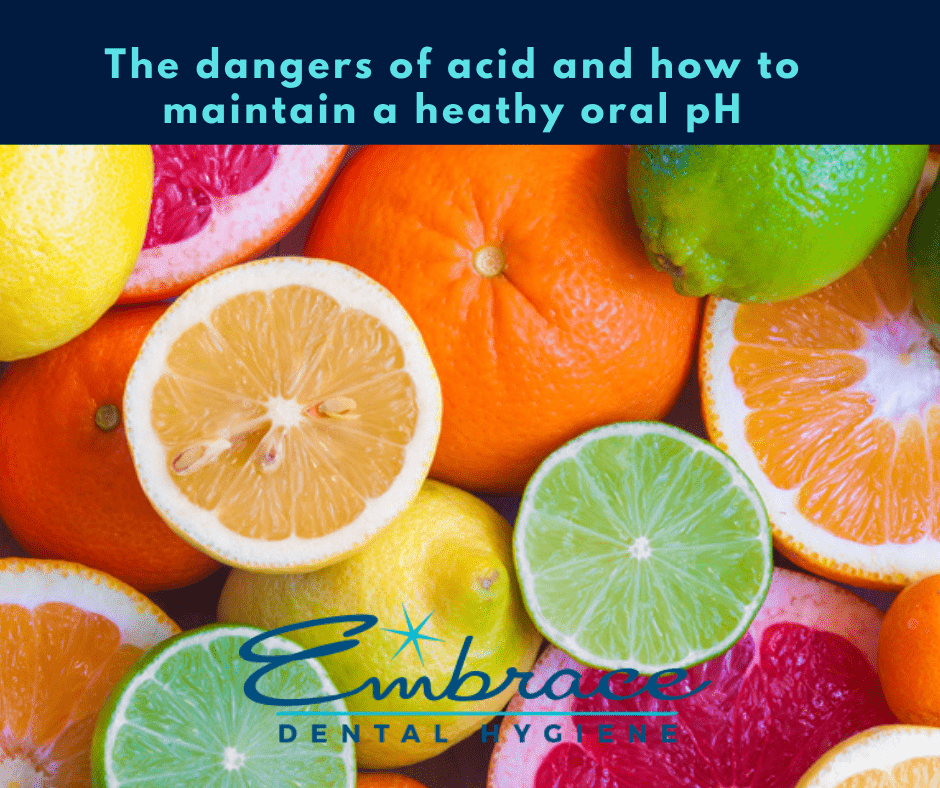
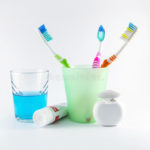


Share This Article
Choose Your Platform: Facebook Twitter Google Plus Linkedin